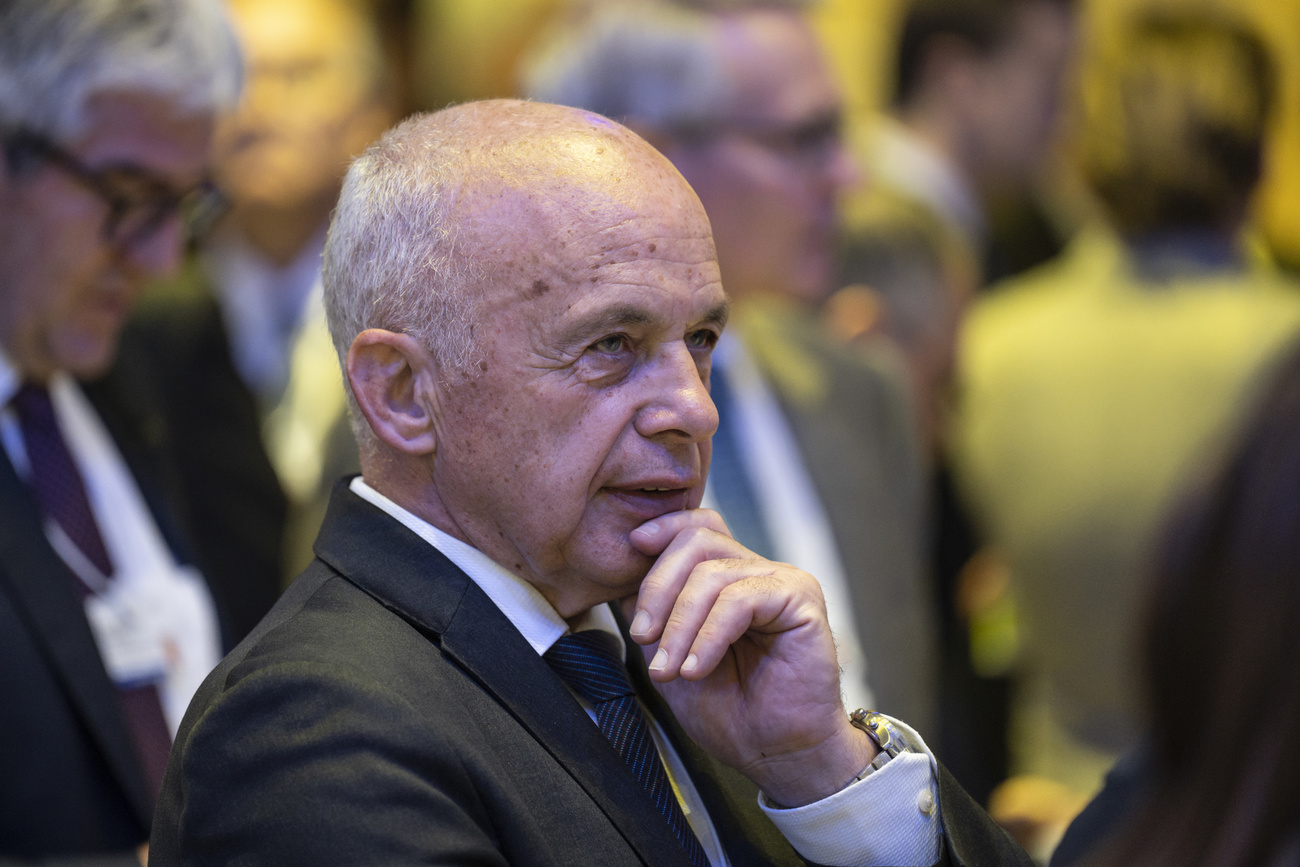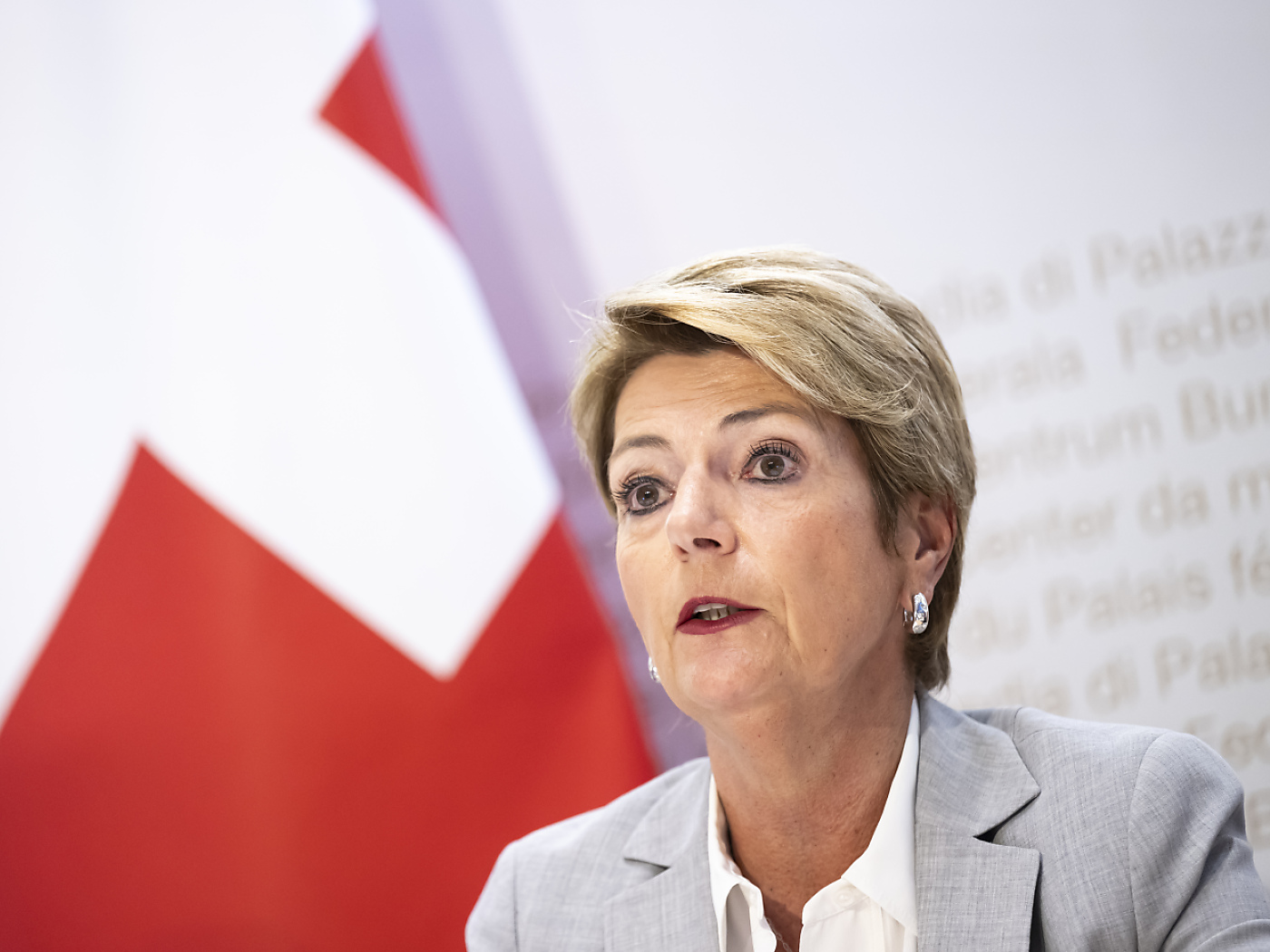
Switzerland Today
Greetings from Lausanne!
The flagship annual meeting of the World Economic Forum (WEF) is always a busy time for the Swiss resort of Davos. It also represents an excellent financial opportunity for locals.
As well as brisk trade at hotels and restaurants, many people rent out their apartments and offices to businesses and organisations – there was even a cryptocurrency event held in a church this week. Find out more below.
Check out some of our other WEF coverage this week or follow SWI reporters Jessica Davis Plüss @JPluess and Dominque Soguel-dit-Picard @DSoguel who are in Davos covering the WEF #SWI@WEF22.

In the news: guilty Glencore, NATO-Swiss ties and dying bees
- The Swiss government plans to seizeExternal link more than CHF100 million ($104 million) worth of assets from an associate of Ukraine’s former president, Viktor Yanukovich, who was deposed in 2014.
- Swiss-based multinational Glencoreplans to plead guilty to multiple counts of bribery and market manipulation and will face penalties of up to $1.5 billion (CHF1.45 billion) following US, UK and Brazilian investigations into corruption linking the global commodity trader and oil operations in Africa.
- NATO Secretary General Jens Stoltenberg says he is “open to closer ties” with Switzerland. This is “very important because I want close collaboration” too, SwissDefence Minister Viola Amherd said on Tuesday after a meeting between the two officials at the World Economic Forum (WEF) in Davos.
- Russiandiplomat to the UN in Geneva BorisBondarevtoldExternal link the Tages-Anzeiger newspaper that he fears for his life after resigning over the war in Ukraine and his criticism of Vladimir Putin. He thanked the Swiss authorities, who he said are trying to protect him.
- Over a fifth of beecolonies in Switzerland didnotsurvive the winter of 2021-2022, the national umbrella organisation for beekeepers reported on Wednesday.
- Growing complacency about Covid-19 and politicisation of the pandemic response will cost lives as the world is hit by new waves of the virus in the coming months, Pfizer’s chief executive Albert Bourla warnedExternal link at WEF today.

How serious is the rise in monkeypox cases outside Africa?
With cases of monkeypox on the rise outside of Africa – where the viral disease is endemic – public health officials are using contact tracing, isolation and targeted vaccination to curb its spread.
Global health officials say they have tracked more than 200suspected and confirmedcases of monkeypox, a usually mild viral infection, in 19 mostly Europeancountries since early May.
In Switzerland, the number of confirmed cases has risen to two. The second case was detected in a person in Geneva, who was contaminated during a trip abroad, it has been confirmed.
Monkeypox is a rare infection similar to human smallpox, though milder, and was first recorded in the Democratic Republic of the Congo in the 1970s. It is endemic in parts of west and central Africa.
Most of the infections so far have not been severe, and many, but not all, of the cases have been reported in men who have sex with men. Symptoms include fever, headaches, distinctive rashes and pus-filled skin lesions – can last for two to four weeks and often resolve on their own. The variant implicated in the current outbreak has a case fatality rate of around 1%, though no deaths have been reported so far.
The Geneva-based WorldHealthOrganization (WHO) on Tuesday said the latest outbreak was “not normal” but can be contained as more governments said they would launch limited vaccinations to combat rising infections. The first generation of smallpox vaccines – two are currently available – appear to be up to 85% effective in preventing monkeypox, WHO said.
The antiviral drug tecovirimat and the latest generation smallpox vaccine – which both help against monkeypox and are authorised in the EU – are not available in Switzerland, it has been reported. Swiss health authorities say they are currently observing the situation.

The pastor who rents out his church during WEF.
The annual World Economic Forum (WEF) meeting is always a hectic time for the people of Davos (photo above). But it is generally quite fruitful. In 2020, the host town raked in some CHF63 million in turnover from both WEF organisers and spending by the thousands of attendees.
As well as brisk trade in hotels and restaurants, many private individuals rent out their apartments and offices to businesses and organisations.
This is also a special time for the 140-year-old English Church of Davos, near the main WEF convention centre, where this week the focus is on cryptocurrencies and blockchaintechnology rather than God, the Tages-AnzeigerreportsExternal link. Pastor Marc Schmed has made the building available to the American TV broadcaster CNBC and the Filecoin Foundation.
The man of the cloth refuses to say how much the parish is receiving for the rental. “We’ve already had offers for five times what we’re getting today,” says Schmed.
The WEF is in principle “something good”, he says, while admitting that there are some sceptics among his congregation.
“The cooperation serves both sides,” says the pastor. The rental money enables renovation work on the church and full employment for the 44-year-old, who used to also work 40% at the grammar school of the monastery in the village of Disentis.
Over 50 heads of state and government and around 2,500 movers and shakers from politics, business and civil society have been attending the face-to-face WEF annual meeting, which is taking place from May 22-26 after a two-year hiatus due to the Covid-19 pandemic.
More

What to do about rising inflation
Inflation in Switzerland is still low (2.5%) compared with other countries but it has been steadily increasing. The last time inflation in Switzerland was this high was before the financial crisis of 2008.
The government set up a workinggroup in April to study whether measures were needed to ease the burden of households facing higher prices for energy and other items. But according to the Swiss finance minister, Ueli Maurer, (photo above) these are not necessary.
“Petrolprices are affordable in wealthy Switzerland,” he toldExternal link the Tages-Anzeiger today, adding that the state has “no money” to support consumers hit by higher prices.
“Such measures are notnecessary with inflation at 2.5%,” he said.
The finance minister told the paper that he nonetheless fears an economic slowdown.
“I think a recession is approaching. Its severity will depend on how long the war in Ukraine lasts and on energy prices,” he said.
Swiss National Bank (SNB) Chairman Thomas Jordan was also vocalExternal link on inflation and the economic downturn today. He told Bilanz magazine that global monetary policy is entering a new phase of higher interest rates to combat resurgent inflation.
“We are moving into an unpleasant situation for monetary policy: inflation is already high globally and is even rising in many countries, while at the same time economic activity is weakening worldwide,” he said.
This week SNB governing board member Andrea Maechler said the central bank would not hesitate to tighten policy should inflation in Switzerland remain persistently high.

In compliance with the JTI standards
More: SWI swissinfo.ch certified by the Journalism Trust Initiative








